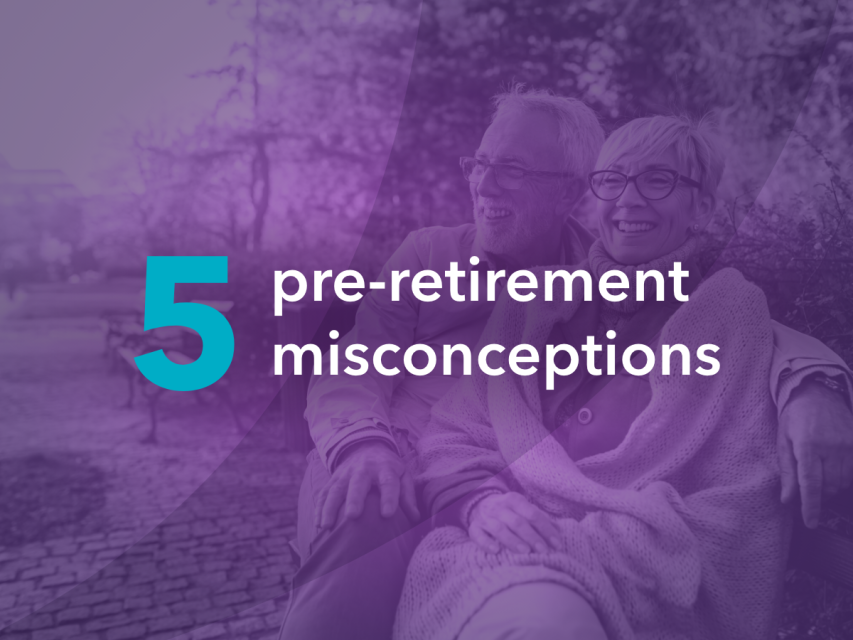Writing a Will is one of the most important actions you can take to protect your financial wealth, as it may help you to think about your Inheritance Tax and determine which beneficiaries take on your financial legacy.
Recent research from Canada Life reveals that over half of UK adults (51%) have not written a Will, nor are they currently in the process of writing one.
In this instance, a person who dies without a Will is known as ‘dying intestate’, meaning that assets will be distributed according to intestacy law.
We’ll touch upon the risk of this and more below, as we cover the key components of a Will, how to get started and dealing with Inheritance Tax.
What is a Will?
A Will is a legal document that lets you decide what happens to your money, property and possessions after your death.
It outlines your wishes regarding the distribution of your assets and the care of any minor children after your death, while also serving as a critical tool in estate planning, ensuring that your belongings are passed on according to your specific instructions.
Key Components of a Will:
- Executor: The person responsible for managing your estate and ensuring your wishes are carried out.
- Beneficiaries: The people or organisations who will receive your assets.
- Guardianship: Appointment of guardians for minor children.
- Specific bequests: Specific items or sums of money you want to leave to certain people.
- Residue of the estate: The remainder of your estate after specific bequests have been made.
In addition to your Will, you should also prepare an Expression of Wish to your Pension. This indicates to your Pension provider your wish for how you want your Pension benefits distributed if you die. This is important, as usually Pensions do not form part of your estate. Letting your Pension provider know your Expression of Wish is important as it allows your beneficiary to inherit your Pension in a way that is tax efficient to your wealth and financial legacy.
It’s worth noting, however, that Expression of Wish is not legally binding like a Will, with any payments at the discretion of the trustees.
Why should you write a Will?
If you pass without a Will, there are certain rules which dictate how the money, property or possessions should be allocated. Making a Will ensures you remain in control of your estate, ensuring a smooth transition of assets. Planning prior to death can also help individuals to potentially reduce the amount of Inheritance Tax for which the estate is liable.
A Will can also establish trusts to protect the interests of beneficiaries, while providing ongoing support to ensure that their inheritance is managed responsibly.
The absence of a Will could also lead to delays in settling your estate, as it can be more complex to determine who is entitled to what, plus potentially additional legal fees.
A lack of planning could result in a higher tax burden on your estate.
When is the best time to write a Will?
Ideally, you should write your Will at the earliest opportunity. Legally, you can do so once you turn 18, however, there are a number of milestones in your life when it is advisable to either write or update a Will.
For example, purchasing a property, getting married or entering a civil partnership, and having children are moments where you start to accumulate an estate and have dependents for the first time.
How to get started with making a Will.
Start by listing all your assets, including property, savings, investments, and personal possessions.
Your Will should set out:
- Who you want to benefit from your Will.
- Who should look after any children under 18.
- Who is going to sort out your estate and carry out your wishes after your death (your executor).
- What happens if the people you want to benefit die before you.
You can also include a charity in your Will.
It can be beneficial to seek out advice from a professional if your Will is not straightforward, for example, if you share a property with someone who is not your husband, wife or civil partner, or if you have property overseas.
You need to get your Will formally witnessed and signed to make it legally valid.
You will also need to be 18 or over, be of sound mind and make it both voluntarily and in writing.
Minimising the impact of Inheritance Tax.
It’s possible to reduce the amount of Inheritance Tax due when you die, so you can leave more to your loved ones. A Will can be used to provide a legal framework outlining tax efficient methods to potentially reduce a bill.
The nil rate band is the initial amount available on which an estate does not have to pay tax and is currently set at £325,000 for the 2024/25 tax year.
However, any assets passing between spouses and civil partners are exempt from Inheritance Tax.
Your surviving spouse or civil partner can also inherit your unused nil-rate band, which could effectively double their own threshold to £650,000. The threshold can only be transferred if:
- The couple were married or in a civil partnership when the first death occurred
- You send the request to HMRC within 2 years of the death of the surviving spouse or civil partner
Updating your Will.
You should review your Will every 5 years and after any major change in your life, for example:
- Getting separated or divorced.
- Getting married (this cancels any Will you made before).
- Having a child.
- Moving house.
- If the executor named in the Will dies.
The only way you can change a Will is by making an official alteration called a codicil, which you must sign and get witnessed in the same way as witnessing a Will.
Dealing with Probate.
If you are named in someone else’s Will as an executor, you may have to apply for probate so that you can deal with their estate.
You do not always need probate to be able to deal with the estate, however as it may often be required, you can check our recent blog which takes a closer look at the process involved.
Thinking of making a Will? Here’s a checklist of key considerations:
- Start by listing all your assets, including property, savings, investments, and personal possessions.
- Choose an executor.
- Decide who you wish to be the beneficiaries of your estate.
- If you have children under 18, you can name legal guardians for them in your Will.
- If you have property in more than one country, you will need to plan appropriately.
- If there are particular items you want to leave to someone, you can specify this in your Will.
- When you make a Will you might also want to consider making a Power of Attorney. This can make things much easier if and when the time comes that you’re no longer able to make or communicate your own decisions.
- Seek advice from a professional if you think your Will is not straightforward.
If you’re a True Potential client and would like further support, you can also call our Relationship Management team on 0191 500 9164. They’re available 7am – 8pm weekdays and 8am – 12pm on Saturday.
If you’re not a client, you can call one of our experts on 0191 625 0350 to learn more.
The Financial Conduct Authority do not regulate Will Writing, Tax Advice and Estate Planning. The guidance and/or advice contained within this blog are subject to the UK regulatory regime and is therefore primarily targeted at customers in the UK.
Tax is subject to an individual’s personal circumstances and tax rules can change at any time. Pension eligibility and tax rules apply.
True Potential Wealth Management is authorised and regulated by the Financial Conduct Authority. FRN 529810. Registered in England and Wales as a Limited Liability Partnership No. OC356611.





